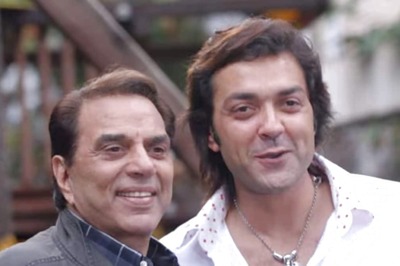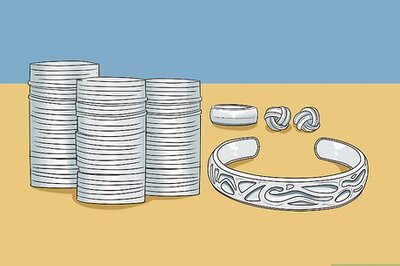
views
Israel and Hamas agreed to a four-day ceasefire that would bring temporary respite for Gazans suffering from bombing and land offensive for over six weeks and release dozens of hostages taken by the Palestinian militant group on October 7. Qatar confirmed the ceasefire agreement saying the start time will be announced in the next 24 hours and it would last for four days.
The truce comes after Israeli Prime Minister Benjamin Netanyahu’s cabinet approved the accord after a near-all-night meeting, in which he told ministers this was a “difficult decision but it’s a right decision.”
Hamas released a statement welcoming the “humanitarian truce”, which it said would also see 150 Palestinians released from Israeli jails.
What Does the Truce Agreement Say?
The ceasefire would bring some respite for the people in Gaza, where large parts of the Palestinian territories have been flattened by thousands of air strikes, and the territory is under siege, with minimal food, water and fuel allowed in.
The truce offers Gaza residents the prospect of a desperately desired, if brief, pause after nearly seven weeks of total war, which has killed over 11,000 Palestinians.
Under the agreement at least 50 Israeli and foreign hostages would be released — women and children — in return for a four-day “lull” in military operations. For every 10 additional hostages released, there would be an extra day of truce.
Sources from Hamas and Islamic Jihad had said the truce would include a complete ceasefire on the ground and a pause in Israeli air operations over southern Gaza.
According to a report in AFP quoting Hamas and Islamic Jihad sources, the proposed deal would also allow for up to 300 trucks of food and medical aid to enter Gaza.
However, Netanyahu’s office, in a statement, underscored that the truce did not spell the end of the war.
Why does Qatar mediate so many conflicts?
Though several countries in the Middle East hope to play the role of mediators including Egypt and Oman, but Qatar has presented itself as the region’s primary problem solver and holds a track record for successful talks in the past.
Apart from the Israel-Hamas war, it has been active in mediation roles in Ukraine, Lebanon, Sudan, Afghanistan and others.
In the case of the latest conflict in Gaza, Qatar has good relations with both Western nations and Hamas and was successful in the release of two American hostages last month.
The negotiations have also positioned Qatar into a delicate international balancing act as it maintains a relationship with those viewed as militant groups by the West while trying to preserve its close ties with the US.
According to a report in The Guardian, Qatar, being a mediator wants to portray itself as indispensable to the international community and protected from interventions by neighbours like Saudi Arabia and the United Arab Emirates.
Has There Been Opposition to Qatar’s Role?
The American right and some in Israel have opposed the role of Qatar and accused it of harbouring terrorists.
North Carolina Republican senator Ted Budd said, “For weeks, Qatar’s foreign ministry has claimed to ‘be close’ to negotiating a deal for the release of hostages held by Hamas – including American hostages. How long will Qatar continue to host terrorists with American blood on their hands?”
Gershon Baskin, an Israeli hostage negotiator who has dealt directly with Hamas, at a recent Middle East Institute seminar said, “Qatar is a state that supports terrorism and they need to be called to order. The Americans need to tell Qatar: if you don’t force Hamas to release hostages, you are going to exile them from Qatar.”
However, Qatar claims that it hosts Hamas’s political leaders not due to ideological sympathy but because the US has asked it to.
Where does Qatar stand on the conflict?
There is no doubt that Qatar’s sympathies lie with the Palestinians. The Qatari foreign ministry has “solely” blamed Israel for Hamas’s attack and has not once condemned the brutality.
In 2012, as war raged in Syria and Hamas’s leadership opposed the Syrian government, Doha provided it with shelter. Qataris said the decision was taken in coordination with the United States and with the blessing of former US President Barack Obama.
Qatar, which has hosted Hamas’s political office for more than 10 years, is also respected by the United States, Israel’s chief ally. It also provides millions of dollars in foreign aid, pays the salaries of civil servants in the Gaza Strip, provides direct cash transfers to poor families, and offers humanitarian aid to Palestinians in Gaza.
The US considers Qatar as a major non-NATO ally and Doha has widening defense trade and security cooperation with America. It is also home to the largest US military base in the region.




















Comments
0 comment